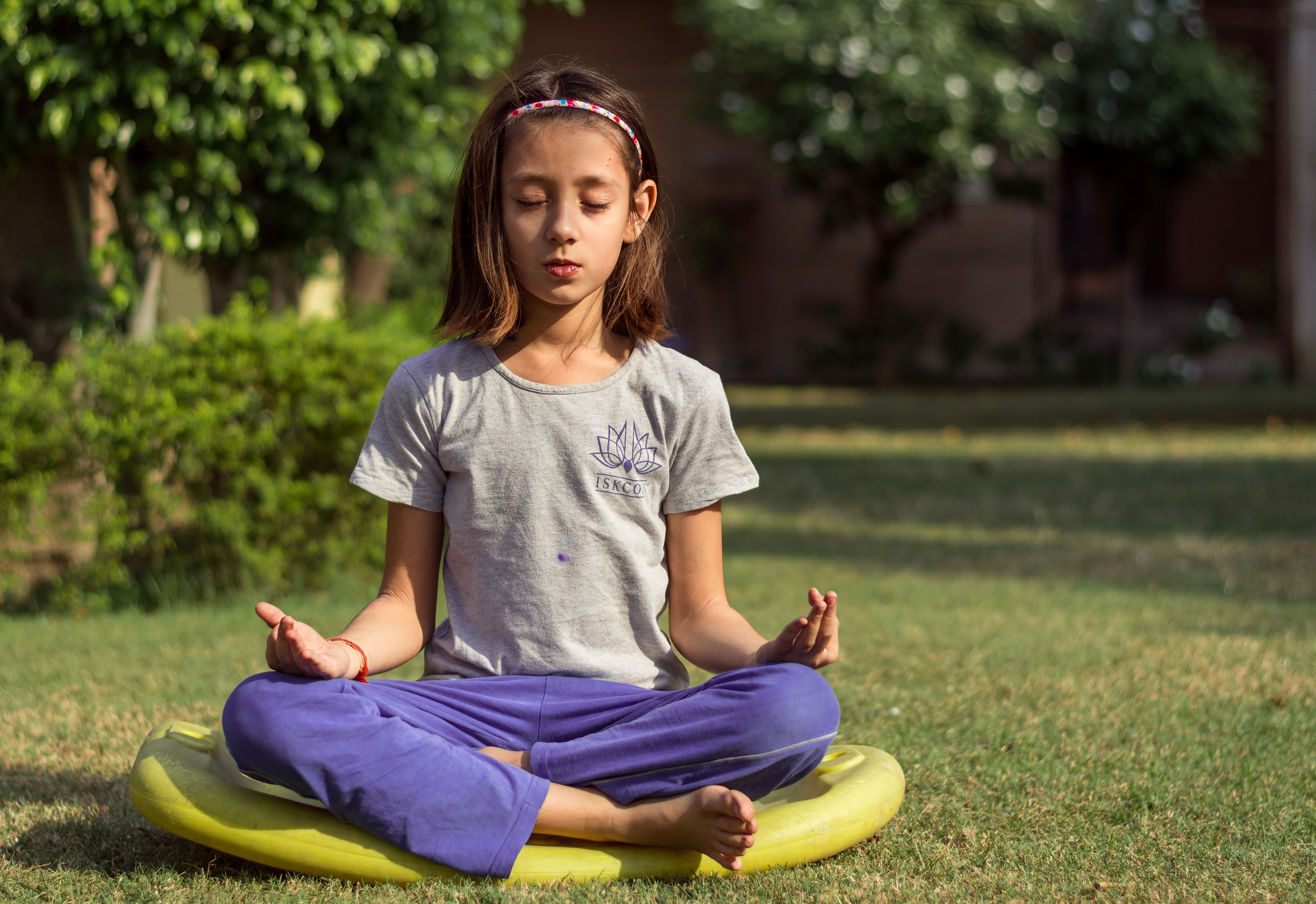You’ve already heard that meditation can help you to lower your stress, or even achieve enlightenment but do you know why some of the most successful people in the world use this tool to achieve their goals? It works, and it works fast.
Meditation isn’t magic. It is a very specific way of breathing, thinking, and processing information that trains your brain. Forbes magazine1 calls meditation more than just a way to relax, but also a way to focus, open your heart to better relationships (both professional and personal) and even help you achieve your goals.
These aren’t empty platitudes. Tons of research supports these claims.
Meditation Builds Confidence to Greater Control Your Destiny
For instance, using mantra meditation you can regain or establish confidence in yourself and your ideas. Positive psychology has proven that what we believe we can achieve, is what we tend to accomplish. Meditation can, therefore, give us control of our destiny2 because we tend to strive for greater, more fulfilling life goals when we have enough belief in ourselves to try.
No “Faith” is Needed in Meditative Practice
What’s even better is that mantra meditation works3 with or without “faith” or belief in a certain religion. You can simply choose a positive thought like, “I am powerful,” or “I deserve love and success,” as your mantra.

Meditation is Like Getting Extra Sleep
One study4, for example, found that mantra meditation “lowered levels of tension; slower heart rate, decreased blood pressure, lower oxygen consumption, and increased alpha wave production". The benefits experienced in 20 minutes of meditation5 exceed those of deep sleep, thus indicating the regenerative power of meditation and saving of wear and tear on the body.”
Another reason this is beneficial is because most successful people will tell you that any worthwhile endeavor takes work, and a lot of it. If you can get an extra boost of energy and mental clarity from a 20-minute meditation, you can fuel your success and get everything accomplished that needs to happen in a single 24-hour period to achieve your dreams in the long-term.
Once you do sleep, meditation improves insomnia6, and increases the quality of night’s rest so that you can start the next day fresh – bright-eyed and bushy-tailed, ready to get ‘er done.
Meditation Helps You Handle Stress Better
Meditation also induces a positive response 7when you are feeling stressed out. If anyone has ever tried to achieve a goal of any magnitude, they know that there will be some stress along the way. Anyone can perform well without stress, but what do you do when stress starts to get the best of you? The answer is to meditate.

Even 10 minutes a day8 can induce a greater sense of relaxation no matter what challenge comes your way.
Meditation Strengthens Discipline, Willpower, and Inner Strength
Without self-discipline and willpower, it is impossible to achieve any great goal. At best, you’ll have wishes and dreams that don’t have real feet under them.
Meditation helps to build your ability to delay gratification9, and continue working on the every-day small steps that build into greater success in your life.
Moreover, willpower is just a matter of training your attention and thoughts to go in a direction that serves your highest good, and your highest goal achievement. Meditation happens to build those muscles and give your dreams the practical grounding they need.
Meditation Mitigates Anxiety
Another byproduct of having big goals is a feeling of anxiety that they are too big to achieve. One thing meditation can help you do is calm those feelings.
It triggers neurotransmitters that modulate psychological disorders such as anxiety and helps to increase our ability to deal with anxious feelings10 that do arise in relation to goal achievement.

Long-Term Meditators Experience More A-Ha Moments
Why work hard when you can work smart. Some of the best successes from inventors, business people, artists, and regular Jane and Joes comes from a burst of creative inspiration. This is more common in those who meditate consistently, as the practice allows you to get out of beta, and into theta and delta brainwave states. Beta is associated with analytical thinking, while theta and delta allow for out-of-the-box, creative insight.
If you have a stubborn challenge to get through when trying to become successful, meditation can help you bust through your own cognitive ceiling.
Summing it Up
Meditation won’t give you superpowers, but it does give you an edge that people who don’t practice meditation likely won’t have.
It builds confidence, lowers anxiety, helps you delay gratification, props up your confidence so that you can dream big and know that you can actually achieve what you long to accomplish, and even helps you sleep better while giving you a boost of clarity and energy.

With practiced and consistent meditation, you will also find that you think of amazing solutions to challenges that arise which don’t normally accompany logical or left-brained thinking alone.
In just eight short weeks of meditation11, people start to experience improved cognitive functioning.
The fear-center of the brain in the amygdala starts to chill out, and after you’re able to sit for hours at a time in meditation and contemplation, you may even be able to achieve crazy things like Wim Hof who has climbed Mount Kilimanjaro without shoes, or Munishri Ajitchandrasagarji12, a Jain monk who can recite 500 items from memory at a time.
There’s no telling what you are truly capable of.
References:
- Kaplan, D. (2017, April 30). Meditation for Manifesting Your Dreams - And Accomplishing Your Goals. Retrieved from https://www.forbes.com/sites/dinakaplan/2017/04/30/meditation-for-manifesting-your-dreams-and-accomplishing-your-goals/#32c4742c36c2
- Cherry, K. (2017, September 24). Locus of Control and Your Life. Retrieved from https://www.verywellmind.com/what-is-locus-of-control-2795434
- Buddha Weekly. The Science of Mantras: Mantras Work With or Without Faith; Research Supports the Effectiveness of Sanskrit Mantra for Healing- and Even Environmental Transformation. Retrieved from https://buddhaweekly.com/science-mantras-mantras-work-without-faith-research-supports-effectiveness-sanskrit-mantra-healing-even-environmental-transformation/
- Craighead, WE, Nemeroff CB. (2002, October) The Corsini Encyclopedia of Psychology and Behavioral Science, 4 Volume SEt, 3rd Edition. Retrieved from https://www.wiley.com/en-ph/The+Corsini+Encyclopedia+of+Psychology+and+Behavioral+Science,+4+Volume+Set,+3rd+Edition-p-9780471244004
- Craighead, WE, Nemeroff CB. (2002, October) The Corsini Encyclopedia of Psychology and Behavioral Science, 4 Volume SEt, 3rd Edition. Retrieved from https://www.wiley.com/en-ph/The+Corsini+Encyclopedia+of+Psychology+and+Behavioral+Science,+4+Volume+Set,+3rd+Edition-p-9780471244004
- Corliss, J. (2015, December 22) Mindfulness meditation helps fight insomnia, improves sleep. Retrieved from https://www.health.harvard.edu/blog/mindfulness-meditation-helps-fight-insomnia-improves-sleep-201502187726
- Vandana, B., Saraswathy, L., Pillai, GKS, Sunadaram, KR, Kumar H. (2011, July). Meditation induces a positive response during stress events in young Indian adults. Retrieved from https://www.ncbi.nlm.nih.gov/pmc/articles/PMC3193656/
- Stoppler MC, Meditation May Reduce Stress and Improve Health. Retrieved from https://www.medicinenet.com/stress_meditation_may_reduce_stress/views.htm
- Mischel, W., Ayduk O., Verma, MG, Casey BH, Gotlib, IH, Jonides, J., Kross E., Teslovich T., Wilson, N., Zayas, V. (2010, September 18) Social Cognitive and Affective Neuroscience, Volume 6, Issue 2, 1 April 2011, Pages 252–256, Retrieved from https://doi.org/10.1093/scan/nsq081
- Krishnakuma D., Hamblin, MR, Lakshmanan S. (2015, April). Meditation and Yoga can Modulate Brain Mechanisms that affect Behavior and Anxiety - A Modern Scientific Perspective. Retrieved from https://www.ncbi.nlm.nih.gov/pmc/articles/PMC4769029/
- Chiesa, A., Calati, R., Serretti, A. (2011) Does mindfulness training improve cognitive abilities? A systematic review of neuropsychological findings. Retrieved from http://psy.fgu.edu.tw/web/wlchou/perceptual_psychology/class_pdf/Advanced%20Perceptual/2011/2011week15_HaoChen_paper.pdf
- Bearak, M. (2014, November 17). A Master of Memory in India Credits Meditation for His Brainy Feats. Retrieved from https://www.nytimes.com/2014/11/18/world/asia/prodigy-in-india-credits-feats-of-memory-to-meditation-and-jainism.html?_r=0
